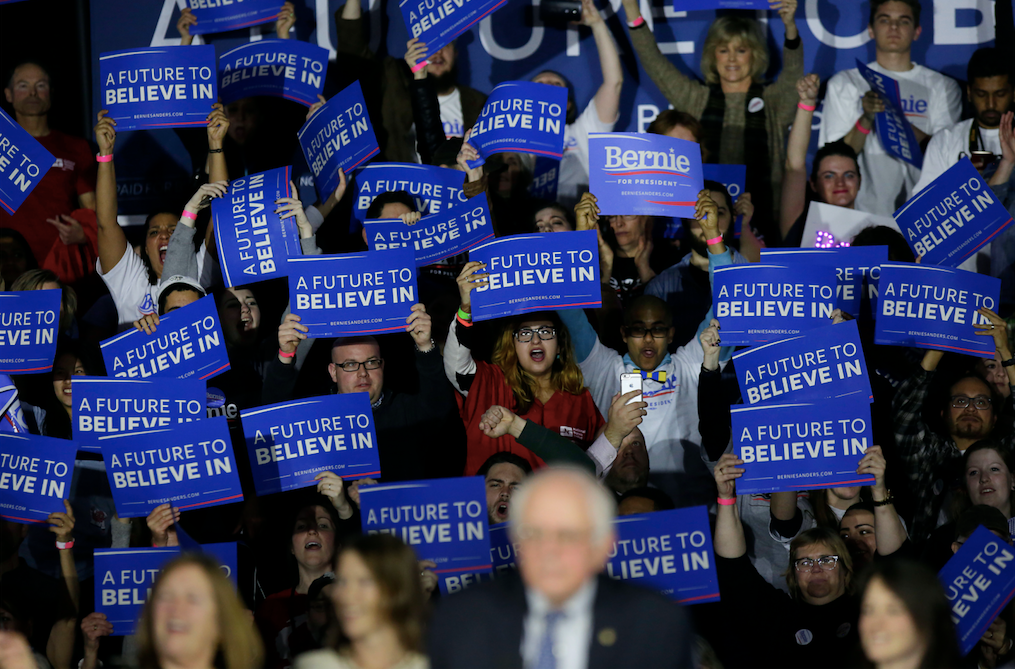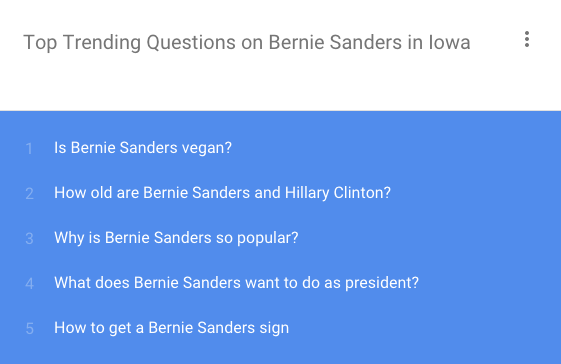US Election 2016: The difference between Clinton and Sanders in one chart
The Democrat frontrunners shared the spoils in Iowa, with both winning between 49.5 and 50 per cent. But the pair are supported by two very different types of voter

What do you want in a political leader? Someone who can win and who has experience? Or someone you think is caring and honest?
That was the question Democrats in Iowa answered on Monday night. One half of the party wanted a winner with experience. The other half wanted someone trustworthy and compassionate.
Hillary Clinton was overwhelmingly favoured by those who wanted a winner. Sanders was backed overwhelmingly by those who care if a candidate is caring.
As the figures in brackets show, 20 per cent of Iowan Democrats cared most about whether a candidate could win, with 28 per cent prioritising experience.
These were Mrs Clinton's core voters. 77 and 88 per cent of these voters backed her.
A total of 26 per cent wanted a caring candidate, with 24 per cent focusing on honesty.
These were Mr Sanders' voters. 74 and 83 per cent of them backed him.
But who were these people? Were they young or old, rich or poor, liberal or moderate?
Mrs Clinton's voters were older, richer and more moderate.
The good news for her is that most voters are, and younger, poorer, more liberal voters are likely to get behind her in the general election - as they do all Democrats - if she can beat Mr Sanders in these primaries.
So who's favoured now? Can Mr Sanders really win, now that he's proven himself Mrs Clinton's equal?
His problem is that Iowa is an overwhelmingly white state, almost all of his supporters are white, and yet he still failed to win it.
Mrs Clinton leads him by a huge margin among non-white voters, who will play a huge role in future primaries, especially big, delegate-rich ones like New York, California and Florida.

Non-white voters make up around 30 per cent of general election voters (13% black, 11% Hispanic and 6% Asian or other), and even more of Democratic primaries, as they vote disproportinately for the party.
Mrs Clinton also has more money than Mr Sanders.
She has spent more so far, nearly 70% more, and yet still has $10 million more cash-on-hand, as well as funding from "super PACs", affiliated organisations which can raise limitless funds for a candidate. Campaigns can only accept so much from an individual, while super PACs can accept as much as they like.
But Mr Sanders' coffers have been filled by small donors who can all give again to his campaign. In January, for instance, each donor only gave an average of $27; they can give up to $2,700.
In contrast, around three in five of Mrs Clinton's donors are 'maxed-out', and cannot give anymore. However, they can give to super PACs and she certainly will not run out of money.
More than 1.3 million Americans have contributed to Mr Sanders' campaign, a record number at this point in the campaign, even more than had backed Barack Obama in 2008.
More money is set to flow into his accounts this week after his apparently strong showing in Iowa.
As Google data shows, many voters were asking following the result, "Why is Bernie Sanders so popular?" and the half-accusatory "Why should Hillary Clinton win?".


Yet we may look back on Monday night and the following week as the high point of the Mr Sanders campaign.
Unless he can win more non-white voters, he is likely to struggle.
Join our commenting forum
Join thought-provoking conversations, follow other Independent readers and see their replies
Comments
Bookmark popover
Removed from bookmarks